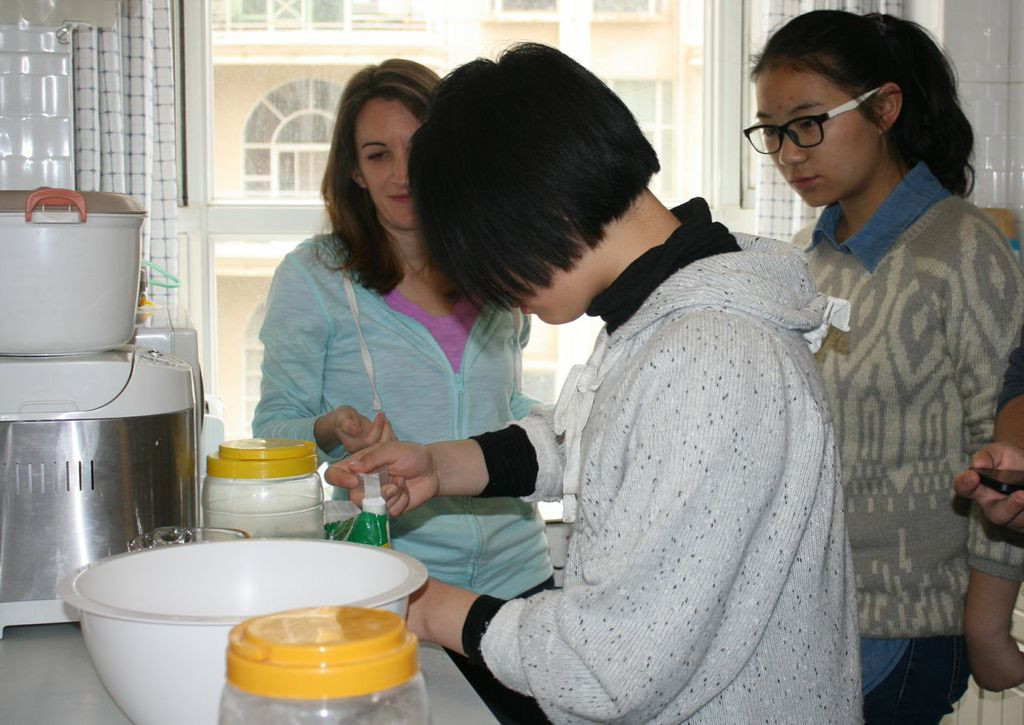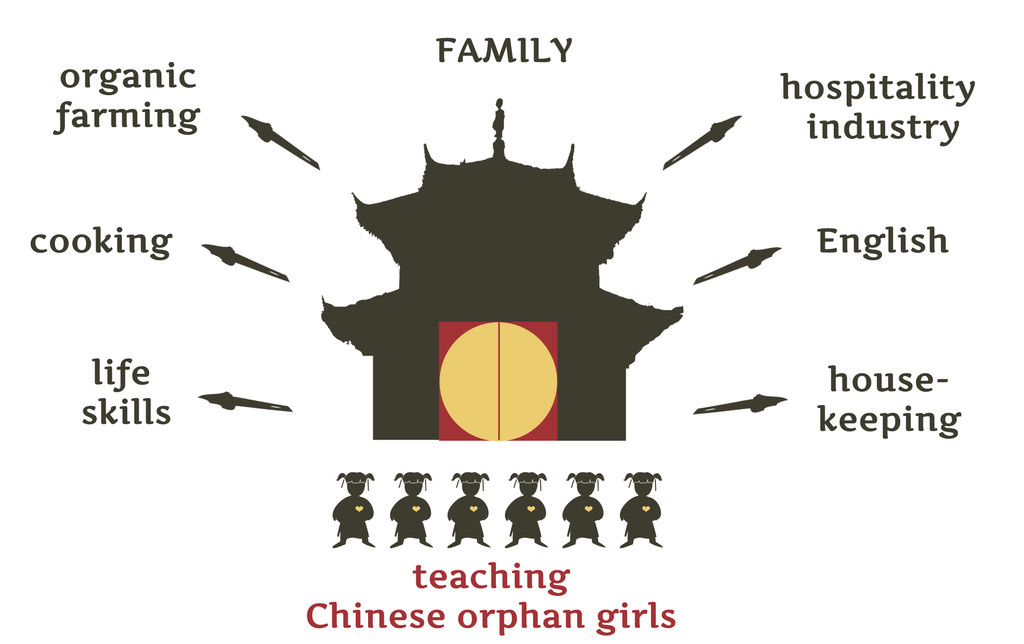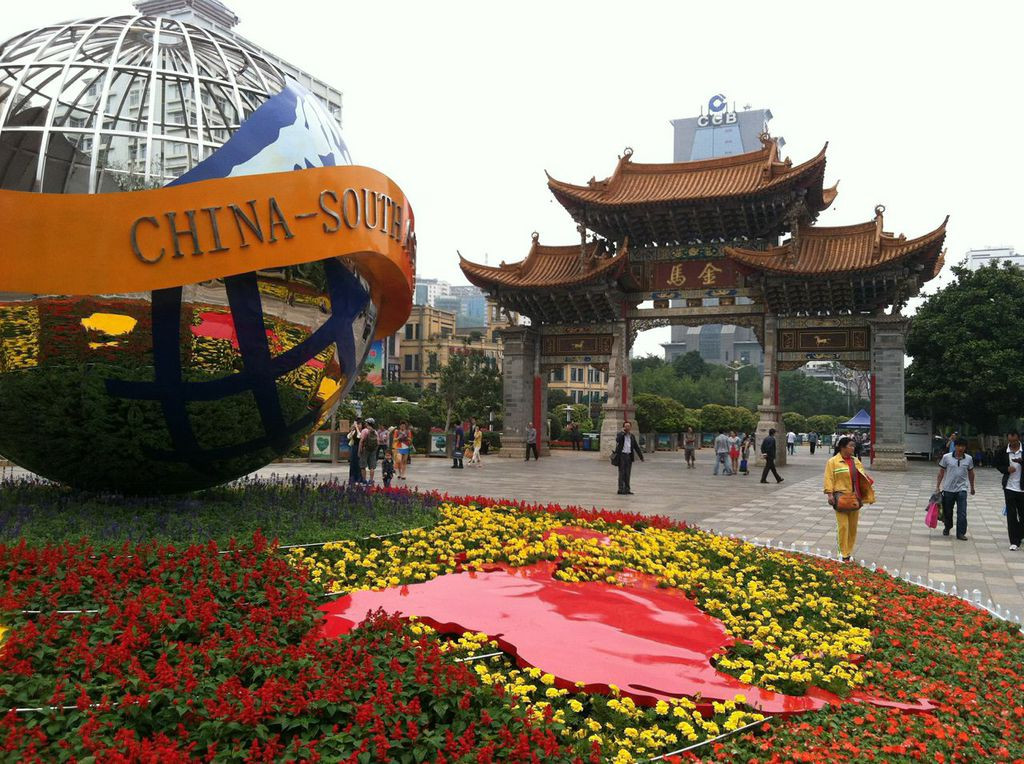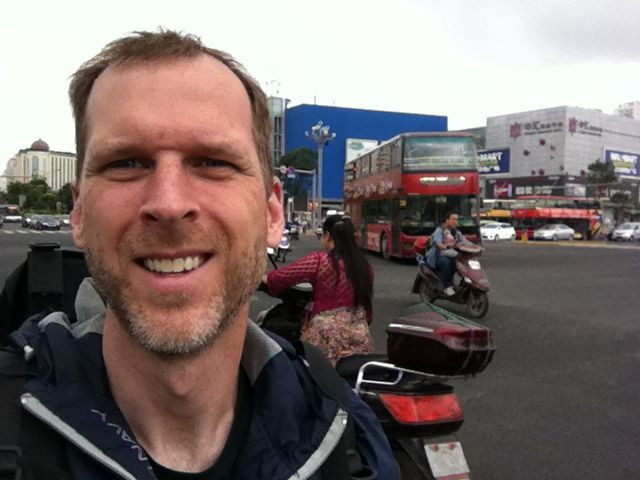Kevin Shorter, an MBA graduate from Wake Forest University, and his wife Allison are the inspiring founders of Josiah’s Covenant, a non-profit organic farming venture. This remarkable initiative provides a nurturing home and meaningful employment for Asian orphan girls who are at high risk of forced marriages, prostitution, and sex trafficking. Leaving their comfortable life in California behind in 2013, the Shorters, along with their two daughters, relocated to Kunming, China. They dedicated themselves to learning Mandarin and establishing a business that not only offers shelter to these vulnerable girls but also equips them with essential English language skills and practical abilities, opening doors to future opportunities and a brighter future.
What sparked your commitment to helping girls vulnerable to human trafficking?
Allison’s awareness began in the 1980s when she learned about China’s One-Child Policy and its devastating consequences. She read heartbreaking stories of countless abortions due to the preference for male children and the abandonment of baby girls at police stations and orphanages by families desperate for a son. This deeply affected her, and she felt a strong calling to adopt Chinese girls, offering them the love, care, and affirmation that being a girl is a blessing.
 Allison teaches the science of baking to Chinese girls.
Allison teaches the science of baking to Chinese girls.
Allison Shorter imparts baking science to Chinese girls at Josiah’s Covenant, empowering them with valuable skills for independence and future livelihoods.
Adoption became a shared dream when we married. We actually embarked on the adoption process twice. The first time, we discovered we were pregnant with our second daughter, which paused our plans. The second attempt ended in heartbreak when, after being matched with a little girl, she was given to another family just two weeks later. It was emotionally devastating. After investing over $30,000 and countless hours across both attempts, we were still longing for our Chinese daughter.
What motivated your move from the USA to China?
Three years after the second failed adoption, the desire to help orphans resurfaced powerfully. We learned about the harsh realities faced by orphan girls in China after they age out of the system at 18. While orphanages receive state funding for children under 18, options become extremely limited for girls once they reach adulthood. Many end up on the streets, lacking family, support networks, and education, making them incredibly vulnerable to traffickers.
The gender imbalance in China is stark, with an estimated 33.8 million more men than women (source: China’s National Bureau of Statistics). This imbalance fuels a surge in kidnapping and trafficking of women. Tragically, the immense pressure and lack of options contribute to a devastating statistic: every four minutes a woman in China commits suicide. China is the only nation globally where female suicide rates exceed male rates (source: World Health Organization). We felt compelled to do more than just adopt one child; we wanted to address the systemic issues and help many.
What is the vision driving Josiah’s Covenant?
 The mission of Josiah
The mission of Josiah
Josiah’s Covenant mission is to provide a safe haven and family environment for vulnerable Asian orphan girls, offering them a path to empowerment and independence.
Our vision is to provide a safe and nurturing environment for girls aging out of orphanages, offering them refuge from the dangers of the streets and exploitation. We established an organic farming business to create jobs specifically for these girls and provide land to house them. By employing them and paying fair wages, we aim to transform their self-perception. For their entire lives, they have been recipients of care. They may have never been shown or told that they possess inherent worth or have something valuable to contribute, especially as females in a culture that often undervalues women. Providing them with jobs where they earn a wage and contribute to a business empowers them to recognize their own capabilities and value.
Beyond employment, we are building a family. These girls are becoming daughters to Allison and me and sisters to our daughters. They need to know they are not alone and that they are genuinely wanted and cherished. Allison is the heart, passion, and driving force behind Josiah’s Covenant. Dean Charles Iacovou of Wake Forest School of Business jokes that she, not I, should have gotten the MBA. She is an incredibly strong and visionary woman, offering far more than just maternal care. My role is to provide a fatherly presence, contribute to training, and manage the business operations, including navigating governmental regulations and seeking future employment opportunities for the girls as they grow and develop.
 Kunming Gate
Kunming Gate
The Kunming Gate in China, representing the Shorter family’s new home and the gateway to a new life for the girls at Josiah’s Covenant.
What has the experience of moving to China been like for your family?
The first year was a steep learning curve, focused on learning Mandarin and adapting to life in China. It’s a completely different world. We arrived without any prior experience in China or knowledge of the language. We are still adjusting, but embracing the journey. Initially, we hoped our daughters would quickly learn Chinese through interactions with local children. However, the Chinese education system is incredibly demanding. Children from age six are in school from 8 am until dinner, followed by specialized classes and homework until late at night. Meaningful interaction with local children their age has been limited.
Despite the cultural differences, our daughters are becoming increasingly adaptable and bilingual. This global experience is enriching all of us, making us more well-rounded individuals. The adjustments have been challenging, but we are all excited about the positive direction we are heading.
You mentioned that Wake Forest University equipped you with skills to “look down the supply chain.” How did your MBA prepare you for this undertaking?
My time at Wake Forest was invaluable. Beyond the excellent education and the strong relationships I built, the most significant takeaway was the problem-solving approach I learned. Our business professors consistently challenged us to analyze problems comprehensively. The natural inclination is to seek quick fixes, but these often create further complications down the line.

Kevin Shorter emphasizes the importance of offering these girls something beyond basic needs, focusing on their emotional and personal growth at Josiah’s Covenant.
China’s One-Child Policy, while intended to manage population growth, had the unintended consequence of widespread gendercide of female babies. Years of this policy created a significant surplus of men and a shrinking pool of women, leading to a desperate demand for female companionship. This demand fuels the trafficking of women, who are often deceived into prostitution or abducted from rural areas and neighboring countries to be sold as brides to men seeking wives. Tragically, an estimated ten thousand Chinese girls enter the sex industry annually, most without choosing this path.
Simply arresting these girls is not a solution; it doesn’t prevent further exploitation. Providing temporary shelter in safe houses offers immediate relief, but the stigma and lack of viable alternatives often lead girls back to trafficking. To truly rescue these girls, we must empower them with confidence and marketable skills.
I am deeply grateful for my Wake Forest experience, which broadened my perspective on complex problems and potential solutions. By examining the root causes of this tragedy in China, we identified an area where we could make a significant impact. Our inherent desire to help orphans, coupled with their extreme vulnerability to trafficking, our business and family skills, and our willingness to relocate, aligned perfectly. While there are many worthy approaches to combatting this issue, we discovered a niche where we can make a real difference. We want these girls to know they are valued, significant, and capable of contributing to society.

